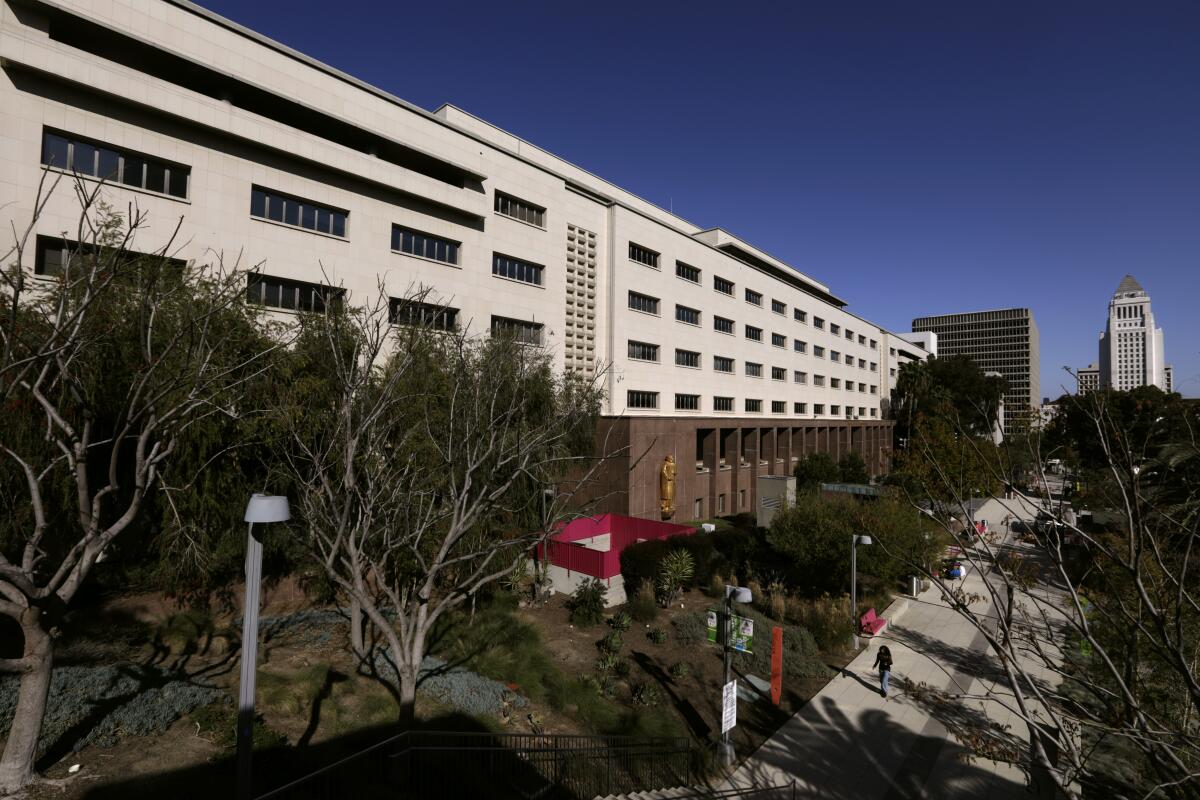Times accuses L.A. County supervisors of violating open-meeting law

- Share via
Los Angeles County supervisors met privately Tuesday to discuss demands by The Times that they turn over transcripts of two recent meetings following alleged violations of one of California’s bedrock open-government laws.
The discussion, held as part of Tuesday’s closed-session board meeting, came after a lawyer representing The Times sent the supervisors a letter accusing them of twice violating the Brown Act, which aims to ensure the public can watch local government meetings.
Under the Brown Act, local agencies are allowed to discuss certain topics behind closed doors. These topics can include litigation, performance evaluations of employees or union negotiations. Local governments must specify the topic and publicize it on an agenda in advance of the meeting.
“What you can’t do is use that as a guise to talk about policy-oriented decisions that the public has a right to be a part of,” said attorney Kelly Aviles, who wrote the April 21 letter on behalf of The Times.
The Times alleged the county violated the Brown Act in closed sessions on March 24 and April 18 — meetings that came at a time of crisis for the county’s Probation Department. The March 24 meeting was held the day after state regulators warned county officials that the state would probably move to shut down the county’s two juvenile halls.
Do you know who your L.A. County supervisor is? Do you know how to get her attention? Use Shape Your L.A. to get active in your community.
In both meetings, the county listed “department head performance evaluations” on the agenda for the closed session. The Times alleges in its letter that the board actually used the time for a broader discussion of the Probation Department.
The letter cites a statement that board Chair Janice Hahn provided saying the March 24 closed session was held to “figure out a path forward to keep both the young people in our halls and our staff safe and supported.”
Aviles argued in her letter that such a conversation would be considered a much wider policy matter than what the Brown Act allows for.
“Furthermore, a preemptive discussion of the state of county juvenile halls or their potential closures reaches far beyond the personnel exception,” the letter states.
A spokesperson for Hahn declined to comment.
In addition to requesting the transcripts, the letter asks the county to “to refrain from similar violations in the future.”
More to Read
Sign up for Essential California
The most important California stories and recommendations in your inbox every morning.
You may occasionally receive promotional content from the Los Angeles Times.












